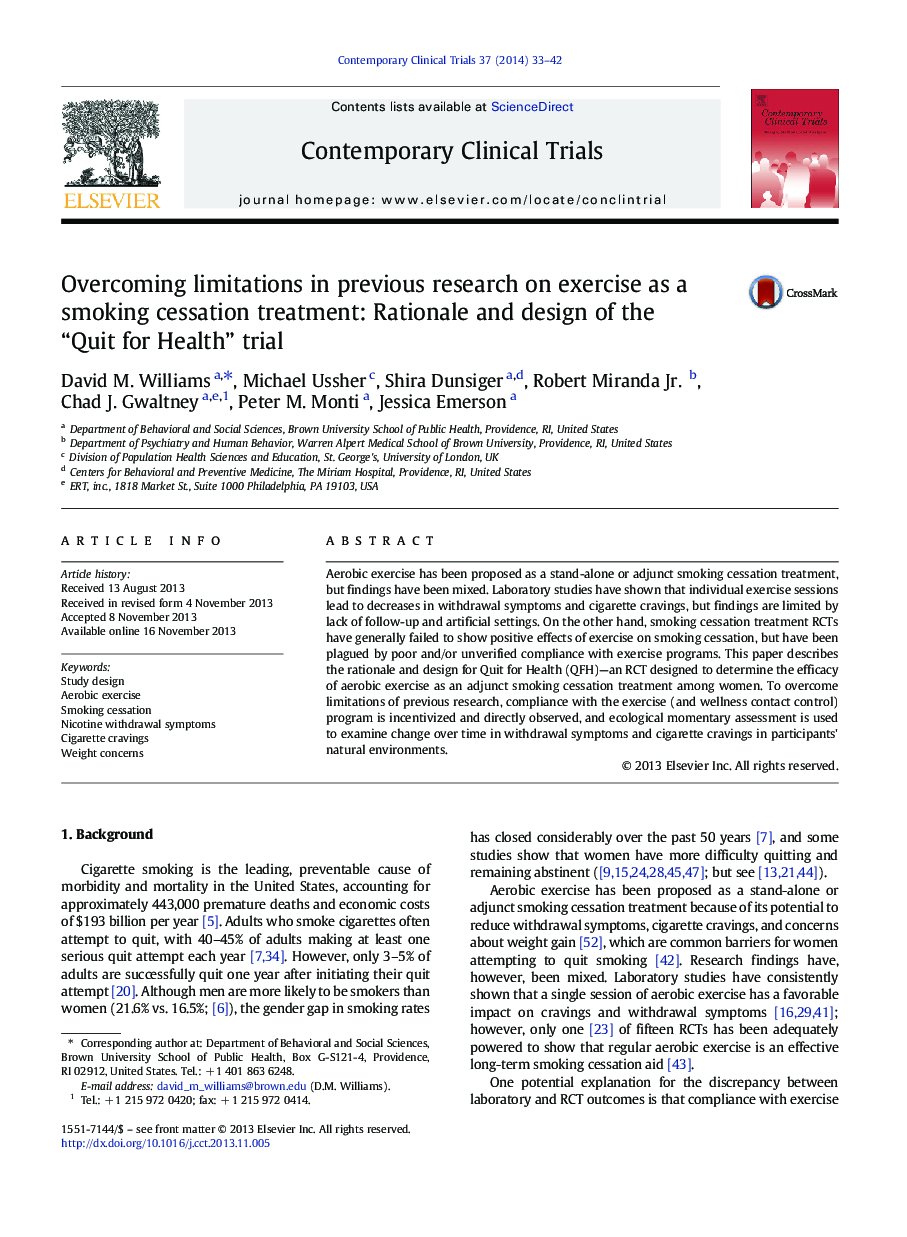| Article ID | Journal | Published Year | Pages | File Type |
|---|---|---|---|---|
| 3462801 | Contemporary Clinical Trials | 2014 | 10 Pages |
Aerobic exercise has been proposed as a stand-alone or adjunct smoking cessation treatment, but findings have been mixed. Laboratory studies have shown that individual exercise sessions lead to decreases in withdrawal symptoms and cigarette cravings, but findings are limited by lack of follow-up and artificial settings. On the other hand, smoking cessation treatment RCTs have generally failed to show positive effects of exercise on smoking cessation, but have been plagued by poor and/or unverified compliance with exercise programs. This paper describes the rationale and design for Quit for Health (QFH)—an RCT designed to determine the efficacy of aerobic exercise as an adjunct smoking cessation treatment among women. To overcome limitations of previous research, compliance with the exercise (and wellness contact control) program is incentivized and directly observed, and ecological momentary assessment is used to examine change over time in withdrawal symptoms and cigarette cravings in participants' natural environments.
